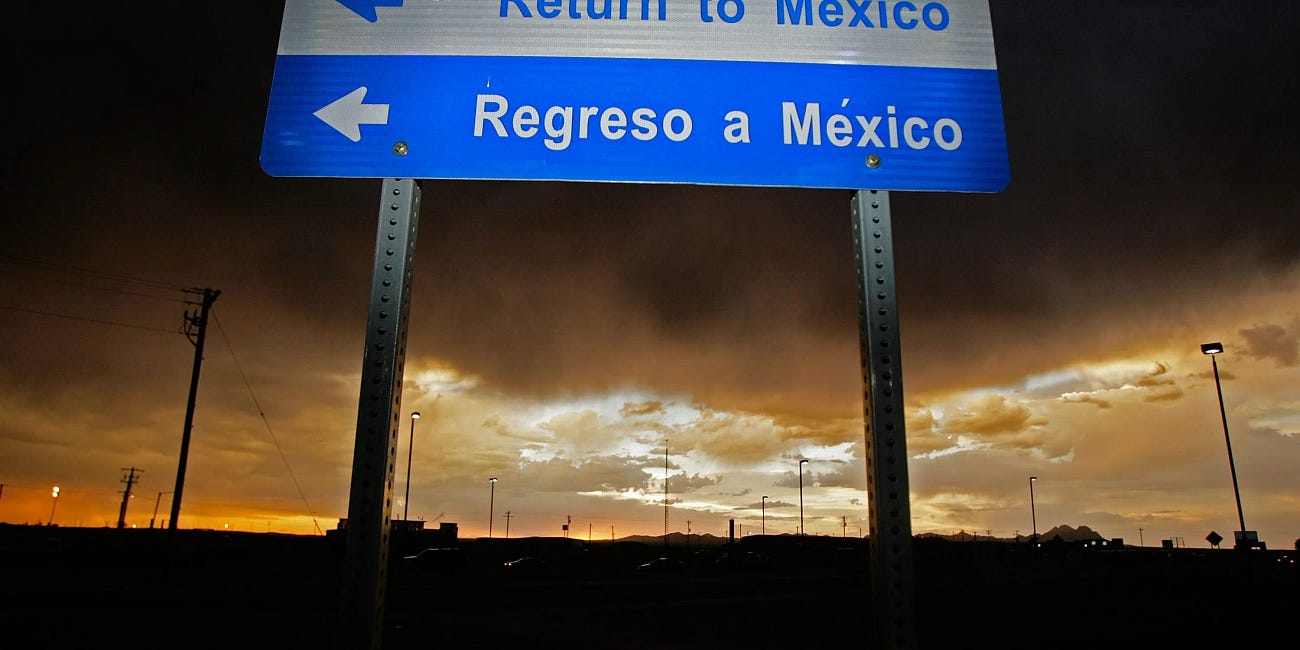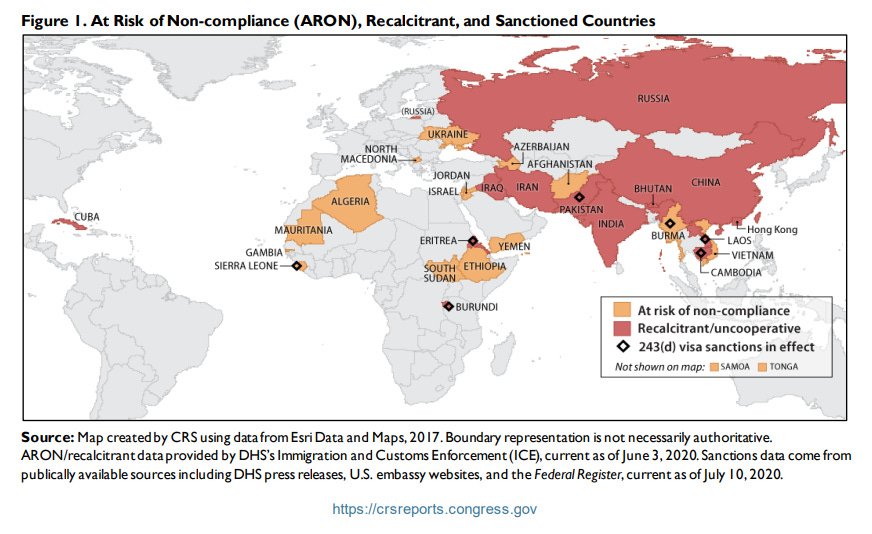A common concern of individuals and policymakers alike is that any attempt at large-scale repatriation will be so logistically challenging and cost-prohibitive as to make such an endeavor unworkable. This is a reasonable concern for the public and pro-White politicians. Moving large volumes of people seems, on an instinctual level, like a complex and expensive task, but fortunately for Americans, the logistics of a Great Repatriation are relatively simple.
It is important to remember that the United States government is one of the most expansive and well-resourced organizations to ever exist in the history of mankind. As of 2023 some 2 million civilians were employed by the Federal government and a further 1.3 million active duty personnel are present in the US armed forces. State governments have 450,000 national guardsmen at their disposal, and more than 825,000 police officers work for state and local governments across the country. These are incredibly important numbers when contrasted with the history of resources made available to deportation operations in the United States.
In The Great Repatriation and Deportation White-Papers covered some of the logistics of Operation Wetback. Specifically, the institute shed light on how just 750 Immigration and Naturalization Service officers managed to deport some 500,000 people from the United States in a single year. These men had 300 vehicles and a handful of ships at their disposal but removed half a million people in the vast expanses of the Southwestern United States.
The article goes into further detail, such as how as recently as the year 2000 the Federal Government removed or returned 1.8 million illegal aliens and other immigrants from the United States. These numbers are important to keep in mind as we expand the scope of this concept in this piece.
Self Deportation & Repatriation:
One key aspect to any Great Repatriation is just how many people would self-deport were the state to become openly pro-White, or even simply enforce immigration policy as it is currently written into law.
During Operation Wetback 1.1 million people left the country during the first year of the operation, and some 600,000 of these departures were individuals who self-deported rather than have the Immigration and Nationality Service enforce their removal. If the United States were to remove 2 million illegal aliens a year through enforcement action it is reasonable to extrapolate, based on the previous numbers, that another 500,000 or more illegal aliens would self-deport.
A key factor in driving self deportation, and reducing the fiscal burden on the White taxpayer to pay for deportations, would be the implementation of mandatory E-verify, which we have written about many times. Without the ability to work, and knowing that law enforcement may come knocking at any point, the illegal alien population would likely be reduced from tens of millions to near-zero within a matter of years.
It is also worth noting that moving these 2.5 million individuals across the border and out of the United States would put no strain on extant infrastructure. 372 million people cross the US-Mexico border annually, and if the US deported each illegal immigrant by land this would represent a mere 0.67% increase in border traffic. Similarly, if each deportation were carried out by plane the increase in airline traffic would be just 2.45% on the current figures, that being 102 million international travelers per annum.
The Cost:
Even if a pro-White administration were to deport each and every illegal immigrant through enforcement means, it would still save the American taxpayer tens of thousands of dollars per individual and billions in total.
A recent publication by the Center for Immigration Studies found the net fiscal drain of a Hispanic immigrant will be $68,000 over the course of their lifetime, namely through the use of various welfare benefits offered by the state(s). This massive cost is best contrasted against the $10,070 cost of deporting a single illegal immigrant. For each removal the White taxpayer is saved a staggering total of $57,930 per illegal.
What of other repatriations, though? While there are 30 million or more illegal aliens in the United States, there are also some 140-plus million non-Whites in the country who are adults who legally acquired or were born with US citizenship and must therefore be enticed to relocate. Some of these individuals will be criminals who acquired their citizenship through deceit, and they will be denaturalized per existing procedure, but many are not.
In our previous article, we discussed that each native-born Hispanic has a net negative fiscal impact of some $9,570 each year, or $746,460 over the course of their lifetime. Native-born Blacks also carry serious negative fiscal impacts, to the tune of some $18,201 per individual year, or $1.3 million dollars per Black lifetime. These numbers are catastrophically high and the cost is born entirely by the White taxpayer.
In that same article, linked below, we also suggested that rather than bearing the lifetime cost of these non-Whites, who are clearly unhappy in the United States, it would be much more fiscally, socially, and demographically sound to pay each (adult) individual 10% of their projected lifelong impact on the American taxpayer. This would be $74,656 per Hispanic adult and $130,000 per Black adult.
The cost-savings to the (White) American taxpayer would be immense and alleviate countless other problems to do with drinking water supply, the cost of housing, suppressed wages, traffic, and countless other issues.
Assisting in Relocation:
Many would-be repatriates are going to require significant assistance in locating to new countries and returning to their ethnic homelands. Luckily the American state has a great deal of experience in this realm. Each year the State Department helps more than 100,000 Americans with repatriation flights to the United States from abroad. The department issues emergency travel documents, field tens of thousands of phone calls, and book thousands of flights annually.
The Federal government also operates many travel-related services, spending more than $2.8 billion to book 3 million flights for Federal employees each year. Additionally, the Federal government issues more than 20 million passports and other travel documents a year to Americans and submits hundreds of thousands of requests per annum to foreign governments to verify the identity and travel documents of visitors and foreign residents in the country.
It would take a minimal effort to retool this vast bureaucratic machine to assist in repatriating non-Whites in both leaving the United States and resettling in other countries and White Americans would be pleased to see their tax dollars going to relocating non-Whites out of the country rather than bringing them in.
The Private Sector:
There is also ample opportunity for the private sector to become involved in facilitating the repatriation of non-Whites from the United States. Many such agencies already exist in countries like Ghana, a nation that explicitly calls on the African American population to “return” to the continent to settle down.
With African Americans representing a consumer class capable of spending $835 billion on consumer goods each year, and Hispanics in the United States spending some $1 trillion in the same category, a private sector geared toward repatriation would be a significant boon for both the American economy and the economies of nations which receive the repatriates.
It is also worth mentioning that the American economy would not collapse from the loss of these consumers, White Americans, who are just 54% of the population as of 2020, still represent 80.2% of all consumer spending in the American economy.
With this clarity of vision, and knowing that foreign governments are eager to welcome these non-White populations it is very likely that a pro-White Washington D.C. would be able to readily work out arrangements with the private sector domestically, abroad, and with foreign governments. Those governments that do not wish to cooperate may be forced to rethink their policy choices, as the American state has a plethora of options at its disposal to force cooperation.
Concerns of Foreign States:
Many foreign governments are going to have concerns about voluntary repatriates. While they can and will be forced by law and sanction to take back their citizens, many are going to be concerned about providing housing and services to millions of new arrivals from the United States who may choose to relocate to these nations.
The simplest way to address this concern is to reprogram money that the Federal government is already spending on non-Whites. Each year the Federal government spends more than $30.4 billion on housing vouchers, 76% of which is spent on non-Whites. The United States government could simply reallocate this money to go to building houses in nations where the repatriates are moving. A handful of years funding home construction in order to relocate non-Whites is much better than a future where the money will need to be spent indefinitely on the domestic front to house these populations.
Once again repatriation comes out as a cost-saving measure for White Americans.

The Great Repatriation will be a years-long process, as will be the national discussion necessary to bring it about. But, if White Americans want to maintain the country they build for themselves and pass it on to future generations then it is a process and set of policies that must be implemented.
The American people deserve a safe nation, an affordable nation, and a fiscally sustainable nation free of the demands of foreign groups and peoples.
Support White-Papers:
Zelle: whitepapersinstitute@protonmail.com
Linktree: https://linktr.ee/wppi
Snail Mail: White Papers Policy, PO Box 192, Hancock, MD 21750







